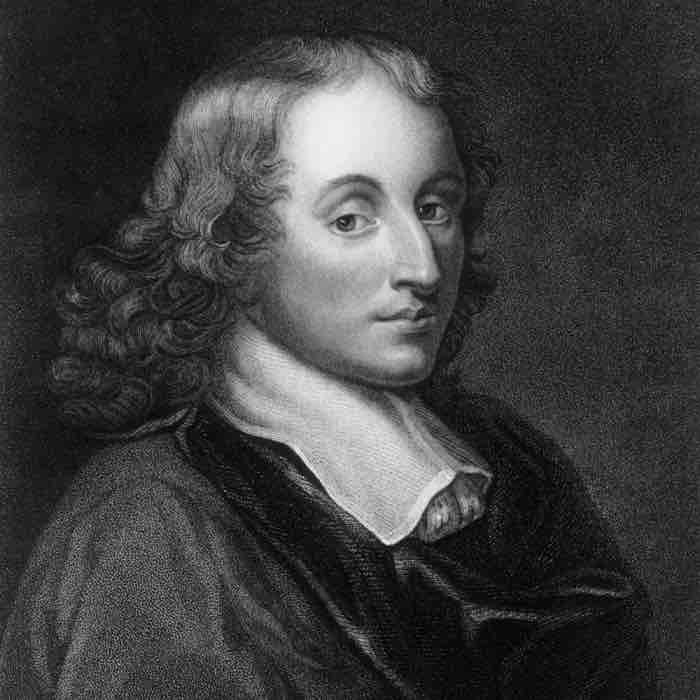- Bernard Preston homepage
- Blaise Pascal
- Blaise Pascal Finds Himself
Blaise Pascal finds himself
Blaise Pascal finds himself helps us discover our own true identities.
Both St Francis of Assisi and Blaise Pascal would have said they were involved prior to their conversion in matters that were ultimately frivolous; their true purpose in life remained hidden in the future. Finding themselves was not dissimilar to the Prodigal Son’s night of pain whilst caring for the pigs; and feign would have eaten their food.
Do we find ourselves?
Do we come to ourselves? Or as some argue the self is not something one finds, it is a new existence that we create.
But discovering or forging the true self one way or another is absolutely fundamental.

James Michener once wrote that money, position and fame are all of little consequence if we never have found our true selves; many loves and even revenge too. In his estimation despite great successes our lives have ultimately been a failure; we have not even come close to reaching our real potential.
Much more
"Much more" is a subject that St Paul takes up in Romans, Ch 5. Pascal would have wagered on this.
- Much more shall we be saved by the death of Christ on the cross from the wrath of God.
- Much more now that we are reconciled to God will we be saved by the life of Christ.
- Much more the free gift of grace shall abound for many.
- Much more will we reign in life.
Finding Christ means a far greater chance of also discovering our true selves; yet it is not guaranteed. It is something we strive towards, so often falling short.
Phrased differently Shakespeare proclaimed, “to thine own self be true.”
But who is the true self?
St Paul is unequivocal. Before the true self can emerge, the old has to die.
For him the old self is mired down in sin; it cannot raise itself up by its boot-strings.
The philosophers of this world would vehemently argue otherwise but for St Paul we are slaves to sin, utterly captured; only the saving grace of God can set us free for the new self to emerge.
Baptism
This is course is what baptism is all about; an outward sign of what has happened within. Going down under the water symbolises the drowning of the old self; emerging we are born to a new life.
The old has passed away, a dead chrysalis remains behind and the butterfly, now able to fly emerges to the new life.
This is the journey we make, to discover our true selves. When children find early on a natural way to Christ, they are spared the night of pain.
For the rest of us, coming to ourselves often means first having to spend time in the pigsty.
If we fail to find ourselves, it doesn’t much matter what else we discover, again to quote Michener; we still have fallen short.
Resolve to be thyself.
And know that he who finds himself, loses his misery.
- Matthew Arnold, the English poet
And so God bless today, at least one ear open to Him as he calls us to do his work in the world.
Blaise Pascal finds himself
Blaise Pascal finds himself revealing that each of us must indeed in the night of fire not seek to run; the Hound of Heaven, lover of our souls pursues us.
When browsing use right click and "Open Link in New Tab" or you may get a bad gateway signal.
Night of fire
What is Blaise Pascal best known for?
Blaise Pascal is best known for the unit of pressure. 2 bars in your tyre is 200kPa. He was also the father of probability theory which is often used in the context of his famous wager.
He also invented the first digital calculator, the hydraulic press and the syringe.
Less well known, Pascal was a prolific writer on many religious themes and credited for bringing peace to the Church in Paris in very troubled, contentious times.
Newsletter
Our newsletter is entitled "create a cyan zone" at your home, preserving both yourself and Mother Earth for future generations; and the family too, of course. We promise not to spam you with daily emails promoting various products. You may get an occasional nudge to buy one of my books.
Here are the back issues.
- Lifestyle and ideal body weight
- What are ultra-processed foods?
- Investing in long-term health
- Diseases from plastic exposure
- Intensive lifestyle management for obesity has limited value
- A world largely devoid of Parkinson's Disease
- The impact of friendly bacteria in the tum on the prevention of cancer
- There's a hole in the bucket
- Everyone is talking about weight loss drugs
- Pull the sweet tooth
- If you suffer from heartburn plant a susu
- Refined maize meal and stunting
- Should agriculture and industry get priority for water and electricity?
- Nature is calling
- Mill your own flour
- Bake your own sourdough bread
- Microplastics from our water
- Alternative types of water storage
- Wear your clothes out
- Comfort foods
- Create a bee-friendly environment
- Go to bed slightly hungry
- Keep bees
- Blue zone folk are religious
- Reduce plastic waste
- Family is important
- What can go in compost?
- Grow broad beans for longevity
- Harvest and store sunshine
- Blue zone exercise
- Harvest and store your rainwater
- Create a cyan zone at your home
Did you find this page interesting? How about forwarding it to a friendly book or food junkie? Better still, a social media tick would help.
- Bernard Preston homepage
- Blaise Pascal
- Blaise Pascal Finds Himself
Address:
56 Groenekloof Rd,
Hilton, KZN
South Africa
Website:
https://www.bernard-preston.com